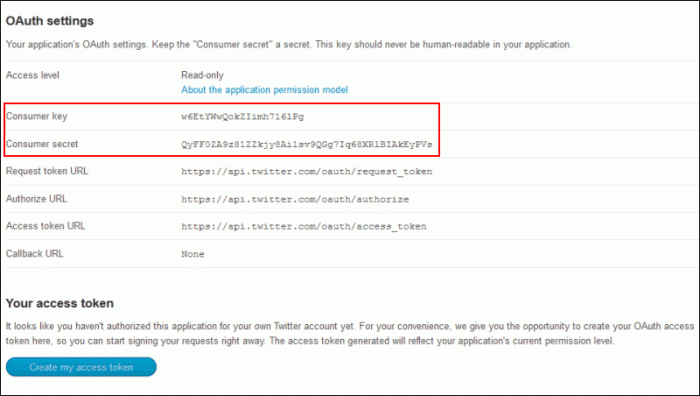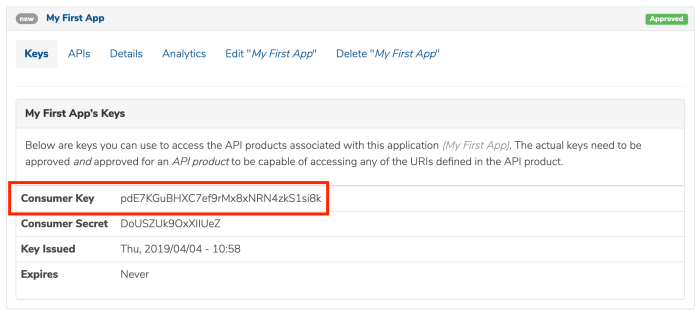Mgmt 12th edition chuck williams pdf – Mgmt 12th Edition by Chuck Williams pdf is a comprehensive and engaging textbook that provides a thorough overview of the fundamental concepts and practices of management. Designed for undergraduate and graduate students, this textbook is an invaluable resource for aspiring and practicing managers alike.
Chuck Williams, the renowned management expert, has crafted this textbook with a focus on clarity, practicality, and real-world relevance. Through a combination of theoretical frameworks, case studies, and practical examples, the textbook effectively conveys the complexities of management and its impact on organizational success.
Overview of Management 12th Edition by Chuck Williams

Management 12th Edition by Chuck Williams is a comprehensive textbook designed to provide students with a solid foundation in the principles and practices of management. Written in a clear and engaging style, the book covers a wide range of topics, including planning, organizing, leading, and controlling.
It is an essential resource for students pursuing a degree in business or management.The target audience for Management 12th Edition includes undergraduate and graduate students in business and management programs. The book is also a valuable resource for professionals who are looking to refresh their knowledge of management principles or who are seeking to advance their careers in management.The
key features of Management 12th Edition include:
- A comprehensive coverage of the latest management theories and practices
- Real-world examples and case studies that illustrate how management principles are applied in the workplace
- A focus on developing critical thinking and problem-solving skills
- A user-friendly design that makes it easy to navigate and find the information you need
Key Concepts and Theories

Management is a vast and complex field with a rich history and a diverse range of theories and concepts. The 12th edition of Chuck Williams’ “Overview of Management” provides a comprehensive overview of the fundamental principles and theories that underpin the practice of management.
These concepts and theories serve as a foundation for understanding the complexities of managing organizations and making effective decisions in a rapidly changing business environment.
Systems Theory
Systems theory is a fundamental concept in management that views organizations as complex systems composed of interconnected parts that work together to achieve a common goal. This theory emphasizes the importance of understanding the interrelationships between different parts of an organization and the external environment.
By recognizing the organization as a system, managers can better understand how changes in one area can affect other areas and make decisions that optimize the overall performance of the organization.
For example, a manufacturing company can be viewed as a system that includes interconnected subsystems such as production, marketing, and finance. Changes in one subsystem, such as a new product launch, can have ripple effects on other subsystems, such as increased production demand and the need for additional marketing resources.
By understanding the system as a whole, managers can anticipate these effects and make informed decisions that minimize disruptions and maximize overall efficiency.
Contingency Theory
Contingency theory recognizes that there is no one-size-fits-all approach to management. The most effective management style and practices depend on the specific circumstances of the organization, including its size, industry, and external environment. Contingency theory suggests that managers should adapt their approach to fit the unique needs and challenges of their organization.
For example, a small start-up company may require a more entrepreneurial and flexible management style than a large, established corporation. Similarly, a company operating in a highly competitive industry may need to adopt a more aggressive and results-oriented management approach than a company operating in a more stable environment.
Agency Theory
Agency theory focuses on the relationship between principals (owners) and agents (managers). This theory emphasizes the importance of aligning the interests of agents with the goals of principals. Agency theory suggests that managers may have different objectives than owners, and it is important to design mechanisms that ensure managers act in the best interests of the organization.
For example, shareholders (principals) may want to maximize the value of their investment, while managers (agents) may prioritize their own job security or compensation. Agency theory suggests that mechanisms such as performance-based compensation and independent boards of directors can help align the interests of managers with the goals of shareholders.
Transaction Cost Theory
Transaction cost theory examines the costs associated with making and enforcing contracts. This theory suggests that firms should make decisions about whether to engage in market transactions or internalize activities based on the relative costs of each option. Transaction cost theory can help managers understand the trade-offs between outsourcing and insourcing and make informed decisions about the most efficient way to organize their operations.
For example, a company may decide to outsource its manufacturing operations to a third-party supplier if the transaction costs of outsourcing are lower than the costs of producing the goods internally. Transaction cost theory can help managers identify the factors that affect transaction costs and make decisions that minimize the overall costs of their operations.
Management Functions and Processes

Management involves a series of interconnected functions and processes that are essential for effective leadership and organizational success. These functions include planning, organizing, leading, and controlling.
Each management function comprises specific processes that contribute to the overall effectiveness of the organization. Understanding these functions and processes is crucial for managers to make informed decisions, allocate resources efficiently, and achieve organizational goals.
Planning
Planning is the process of establishing goals, developing strategies, and outlining the steps necessary to achieve them. It involves forecasting future events, identifying potential challenges, and creating contingency plans. Effective planning enables organizations to anticipate changes, adapt to market demands, and stay ahead of competition.
Organizing
Organizing involves structuring the organization’s resources, including human resources, physical resources, and financial resources. It defines roles and responsibilities, establishes reporting relationships, and allocates resources to achieve organizational goals. Effective organizing ensures that tasks are assigned appropriately, resources are utilized efficiently, and communication channels are clear.
Leading, Mgmt 12th edition chuck williams pdf
Leading is the process of motivating, inspiring, and guiding employees towards achieving organizational goals. It involves setting clear expectations, providing support and feedback, and creating a positive work environment. Effective leaders foster collaboration, promote innovation, and empower employees to make decisions and take ownership of their work.
Controlling
Controlling involves monitoring progress, measuring performance, and taking corrective actions to ensure that organizational goals are met. It includes setting performance standards, tracking progress, identifying deviations from plans, and implementing corrective measures. Effective controlling enables organizations to identify areas for improvement, adjust strategies, and maintain efficiency and effectiveness.
Organizational Behavior and Human Resource Management

Organizational behavior is the study of human behavior within organizations. It examines how individuals and groups interact, communicate, and make decisions in the workplace. Understanding organizational behavior is crucial for managers as it helps them create a positive and productive work environment, motivate employees, and improve overall organizational performance.
Principles and Practices of Human Resource Management
Human resource management (HRM) involves the acquisition, development, and management of human resources within an organization. Key principles of HRM include:
Recruitment and Selection
Identifying and hiring qualified candidates to fill vacant positions.
Employee Development
Providing training, coaching, and opportunities for employees to enhance their skills and knowledge.
Performance Management
Setting performance goals, providing feedback, and evaluating employee performance.
Compensation and Benefits
Determining fair and competitive compensation packages and providing employee benefits.
Employee Relations
Maintaining positive relationships between employees and management, addressing grievances, and promoting a healthy work environment.HRM practices aim to attract, retain, and develop a talented workforce that contributes to the organization’s success.
Case Studies and Applications: Mgmt 12th Edition Chuck Williams Pdf

Case studies and applications are integral components of management education, providing students with the opportunity to apply theoretical concepts to real-world scenarios. They foster critical thinking, problem-solving skills, and an understanding of the practical implications of management principles.
The 12th edition of Overview of Management by Chuck Williams incorporates numerous case studies and examples that illustrate the application of management theories and principles. These cases span a wide range of industries and organizational contexts, allowing students to explore the complexities of management in various settings.
Analysis of Case Studies
The analysis of case studies requires students to critically evaluate the situation presented, identify key issues, and develop potential solutions. By engaging with these cases, students develop their ability to:
- Understand the context and challenges faced by organizations
- Apply management theories and frameworks to real-world problems
- Develop creative and innovative solutions
- Evaluate the effectiveness of different management approaches
The cases presented in the textbook cover a variety of topics, including strategic planning, organizational structure, leadership, motivation, and communication. They provide a valuable opportunity for students to apply their knowledge and gain a deeper understanding of the complexities of management.
Critical Thinking and Problem-Solving Skills
Case studies encourage students to think critically and develop problem-solving skills. By analyzing the cases, students must:
- Identify and define the problem
- Gather and interpret relevant information
- Generate and evaluate alternative solutions
- Select and implement the best solution
Through this process, students develop their ability to analyze complex situations, make informed decisions, and solve problems effectively.
FAQs
What are the key features of Mgmt 12th Edition by Chuck Williams pdf?
Mgmt 12th Edition by Chuck Williams pdf offers several key features, including a user-friendly layout, engaging writing style, comprehensive coverage of management concepts and theories, and a wealth of case studies and practical examples.
Who is the target audience for Mgmt 12th Edition by Chuck Williams pdf?
Mgmt 12th Edition by Chuck Williams pdf is designed for undergraduate and graduate students in management, business administration, and related fields. It is also a valuable resource for practicing managers and professionals seeking to enhance their knowledge and skills.
How does Mgmt 12th Edition by Chuck Williams pdf compare to other management textbooks?
Mgmt 12th Edition by Chuck Williams pdf stands out from other management textbooks through its emphasis on clarity, practicality, and real-world relevance. The textbook’s engaging writing style and abundance of learning resources make it an ideal choice for students and educators alike.
